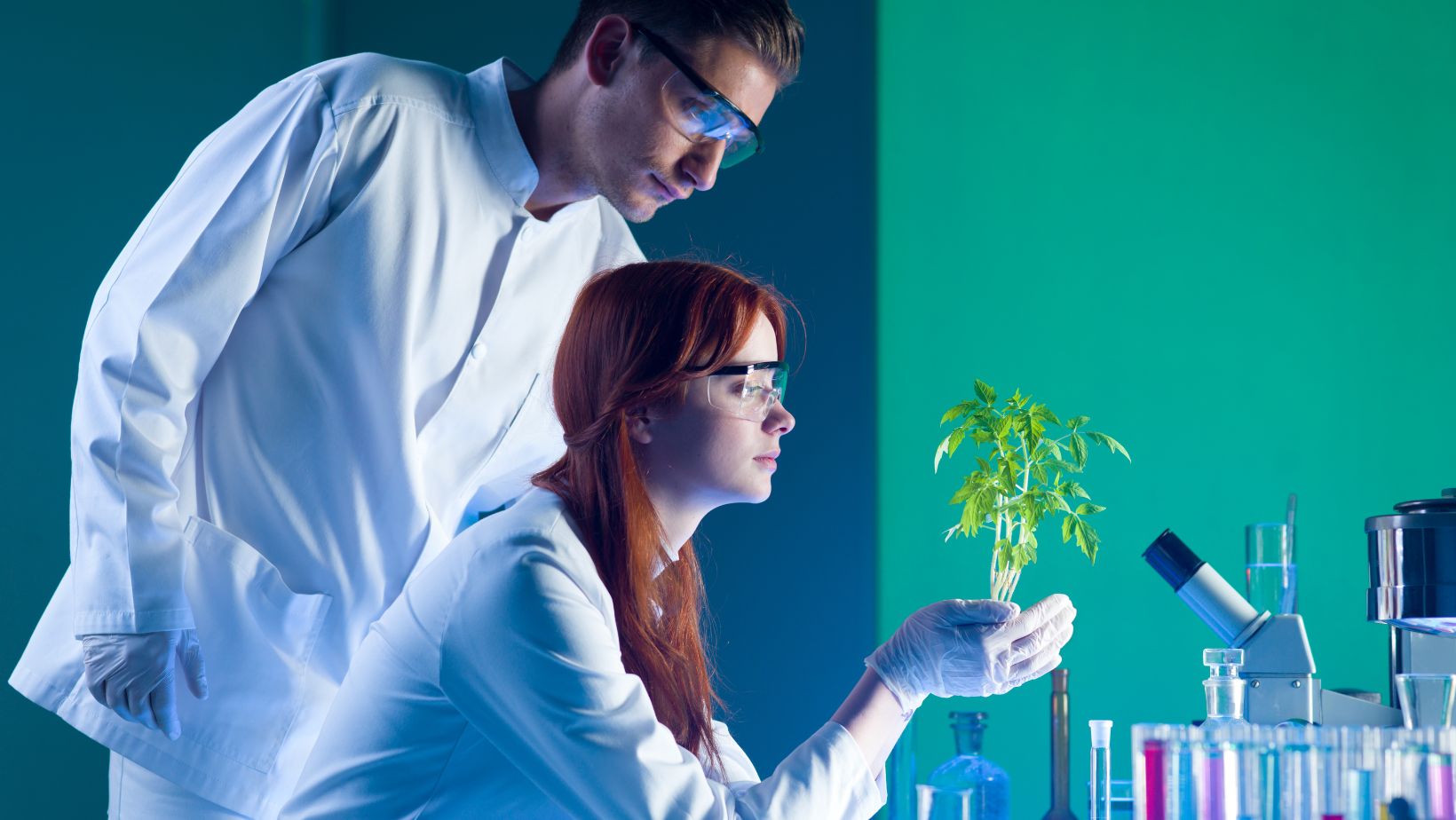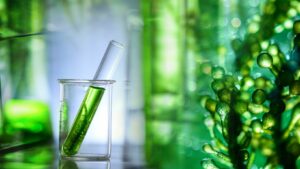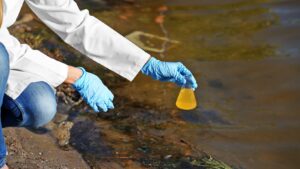
In the quest for sustainable solutions to the world’s environmental challenges, environmental biotechnology emerges as a beacon of hope. This innovative field leverages the power of living organisms to tackle pollution, restore ecosystems, and even generate clean energy. By harnessing the natural processes of microbes, plants, and enzymes, environmental biotechnology offers a green alternative to traditional industrial methods, promising a healthier planet for future generations.
Environmental Bio technology
 Environmental biotechnology plays a pivotal role in addressing some of the most pressing ecological challenges of our time. By leveraging living organisms, including microbes, plants, and enzymes, this field offers innovative solutions for pollution control, ecosystem restoration, and the development of clean energy sources. It stands as a sustainable alternative to conventional industrial practices, utilizing natural processes to achieve environmental goals. Key applications include the remediation of oil spills through bioremediation techniques, production of biodegradable plastics that reduce reliance on fossil fuels, and the treatment of wastewater without the need for harsh chemicals. These approaches not only mitigate environmental damage but also promote the conservation of resources, demonstrating the transformative potential of environmental biotechnology in fostering a healthier planet. The integration of these biological tools and processes exemplifies a strategic move towards more eco-friendly and efficient methods of managing environmental issues, highlighting the field’s crucial contribution to sustainable development and its ongoing impact on global environmental health.
Environmental biotechnology plays a pivotal role in addressing some of the most pressing ecological challenges of our time. By leveraging living organisms, including microbes, plants, and enzymes, this field offers innovative solutions for pollution control, ecosystem restoration, and the development of clean energy sources. It stands as a sustainable alternative to conventional industrial practices, utilizing natural processes to achieve environmental goals. Key applications include the remediation of oil spills through bioremediation techniques, production of biodegradable plastics that reduce reliance on fossil fuels, and the treatment of wastewater without the need for harsh chemicals. These approaches not only mitigate environmental damage but also promote the conservation of resources, demonstrating the transformative potential of environmental biotechnology in fostering a healthier planet. The integration of these biological tools and processes exemplifies a strategic move towards more eco-friendly and efficient methods of managing environmental issues, highlighting the field’s crucial contribution to sustainable development and its ongoing impact on global environmental health.
Key Applications of Environmental Biotechnology
Environmental biotechnology plays a crucial role in harnessing the power of living organisms to address environmental challenges. This section outlines specific applications where this technology significantly contributes to sustainability and environmental health.
Pollution Control
It provides innovative solutions for detoxifying pollutants from soil, air, and water. Techniques such as bioremediation use microbes to clean up contaminated sites, effectively breaking down hazardous substances into less harmful components. This application showcases environmental biotechnology’s capacity to restore polluted environments.
Waste Management
This technology transforms waste into valuable resources. By employing processes like composting and anaerobic digestion, organic waste is converted into biogas, a clean and renewable energy source. This not only reduces landfill reliance but also contributes to energy sustainability.
Sustainable Agriculture
Environmental biotechnology advances sustainable agriculture through the development of biofertilizers and biopesticides. These products offer eco-friendly alternatives to chemical fertilizers and pesticides, enhancing soil fertility and crop protection without adverse environmental impacts. In each application, environmental biotechnology leverages biological processes for ecological restoration, resource conservation, and sustainable development.
Advancements in Environmental Biotechnology
 Advancements in environmental biotechnology have propelled significant progress in sustainable strategies, reflecting this field’s evolving dynamic. Innovations in genetic engineering have enabled the development of microbes with enhanced abilities to degrade pollutants, offering more efficient solutions for bioremediation projects. Researchers have engineered plants capable of absorbing heavy metals from contaminated soils, thus, speeding up the process of phytoremediation. In waste management, novel technologies facilitate the conversion of organic waste into valuable bioproducts, such as biogas and biofertilizers, through optimized anaerobic digestion processes. These advancements not only contribute to reducing greenhouse gas emissions but also support renewable energy generation and nutrient recycling. Furthermore, the integration of biofilters in water treatment plants has improved the removal of organic compounds, ensuring cleaner water outputs with fewer chemical inputs. This innovation underscores environmental biotechnology’s role in bolstering water quality and availability.
Advancements in environmental biotechnology have propelled significant progress in sustainable strategies, reflecting this field’s evolving dynamic. Innovations in genetic engineering have enabled the development of microbes with enhanced abilities to degrade pollutants, offering more efficient solutions for bioremediation projects. Researchers have engineered plants capable of absorbing heavy metals from contaminated soils, thus, speeding up the process of phytoremediation. In waste management, novel technologies facilitate the conversion of organic waste into valuable bioproducts, such as biogas and biofertilizers, through optimized anaerobic digestion processes. These advancements not only contribute to reducing greenhouse gas emissions but also support renewable energy generation and nutrient recycling. Furthermore, the integration of biofilters in water treatment plants has improved the removal of organic compounds, ensuring cleaner water outputs with fewer chemical inputs. This innovation underscores environmental biotechnology’s role in bolstering water quality and availability.
Challenges and Ethical Considerations
Environmental biotechnology holds the key to a sustainable future, offering innovative solutions to some of the most pressing environmental challenges. As the field continues to evolve, it’s imperative to address the ethical considerations and potential obstacles that accompany these advancements. The journey towards a greener planet requires a balanced approach, ensuring that technological innovations do not compromise natural ecosystems or biodiversity. By fostering an ethical framework that prioritizes environmental integrity and sustainability, the potential of environmental biotechnology can be fully realized. The promise of cleaner energy, reduced pollution, and a healthier planet is within reach, highlighting the critical role of environmental biotechnology in shaping a sustainable world for future generations, and utilizing a QR code can provide easy access to information and resources on these advancements.
